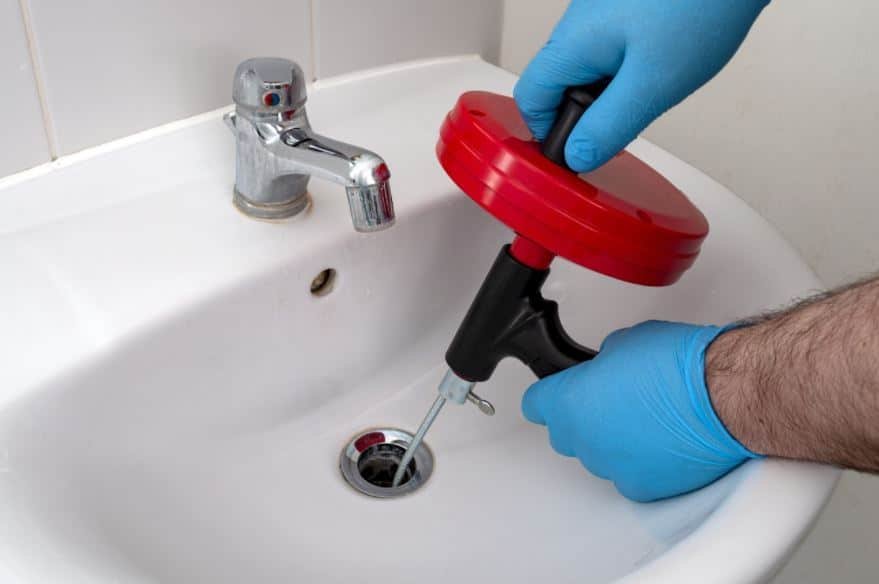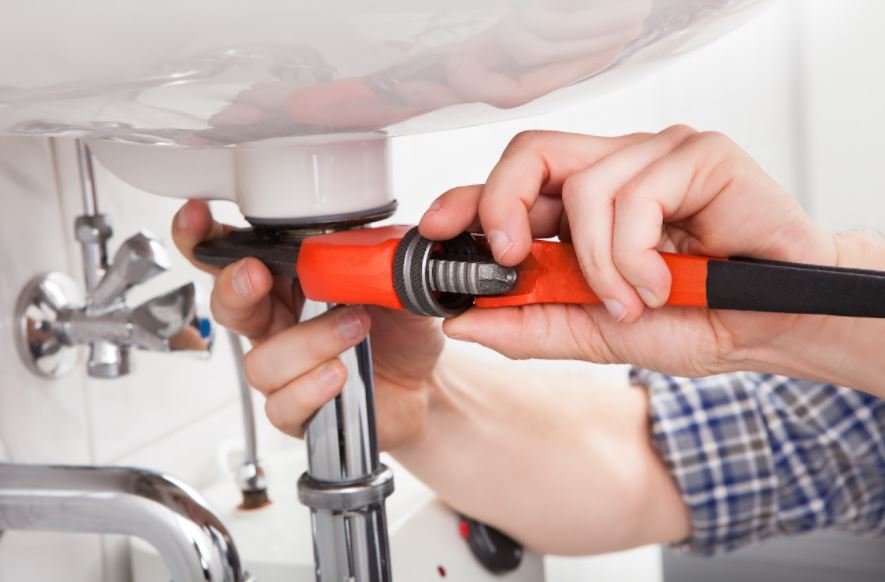Home Improvement
6 Ways To Prevent Major Plumbing Disasters

A simple preventative maintenance routine can aid in the correct operation of a home’s plumbing system. Some people assume that keeping shower drains, pipes, and toilets clean is both time-consuming and expensive. On the other hand, spending a small amount of money on preventative measures is less costly than hiring a contractor to repair or replace your entire plumbing system.
Preventative maintenance, such as regular inspections and cleaning, can go a long way toward keeping your plumbing in good shape all year. In case you encounter any issues, it’s always better to seek professional help from reliable plumbers. For instance, if you live in Frisco TX, you can search for “frisco tx plumbers” to find experienced plumbers who can handle everything from clogged drains and backed-up kitchen sinks to slow-draining bathtubs, leaking toilets, and damaged pipes.
[lwptoc]
1. Examine The Water Supply’s Main Shut-Off Valve
Like most things in life, preventing significant problems with your plumbing system necessitates having enough information, including becoming familiar with the essential components of your home’s plumbing. You must locate your main water shut-off valve if you are unfamiliar with its placement.
This gate valve controls the flow of water into your home and is the first line of defense against plumbing issues. Turn off the water as soon as you notice a problem to prevent further damage and give yourself time to fix the problem.
2. Explore Underground Sprinkler Systems
While understanding your home’s plumbing system is essential, so is understanding the exterior of your property. If you’re planning an excavation project, you should know where the subsurface pipelines are located and where you should avoid excavating to avoid injury.
Check sprinkler heads for proper operation before turning them on for the season, and winterize the system to avoid damage to subsurface pipes and water lines.
3. Use Drain Strainers
Showers, baths, and kitchens are all excellent places to put them. Hair loss from showering clogs pipes to the point of becoming a super clog. Before you know it, you’ll be standing in ankle-deep water.
Let’s say you don’t have a strainer in your kitchen sink. When you wash your dishes, the food particles are flushed down the drain, where they become stuck in the pipe.
It eventually clogs, rendering the kitchen sink useless. Ensure you have enough drain filters in your bathroom and kitchen to avoid blockages from forming and causing damage to your pipes.

4. Inspect The Water Heating System
A household water heater can last a decade if properly maintained. Because this equipment is used so frequently, you must test it for defects at least once a month. Reduce the temperature to 115 degrees Fahrenheit.
To do so, adjust the dial knob or thermostat behind the electric water heater. It will aid in the device’s cooling. Always be on the alert for signs that your water heater isn’t working correctly.
If there is no gurgling sound, check the temperature and pressure of the appliance right away. It’s possible that the drain tube isn’t functioning properly because of this. A replacement may be necessary in this case to protect the safety of all occupants.
5. Maintain The Condition Of Your Pipes
Older residential buildings require extra maintenance and may require repiping to minimize leaks and bursts because water pipes are not designed to last permanently and can be damaged by rust, water, and corrosion.
Cold weather can cause pipes to freeze and then burst, resulting in flooding throughout the home. It’s because water expands as it freezes, much as tin cans of soda do when kept in the freezer for a long time.
Weather-related damage can be avoided by insulating pipes adequately, keeping the heat on and setting the thermostat to a consistent temperature throughout winter, and securely closing any exterior doors.
In addition, look for drafts in unheated areas of the house and seal any crevices to keep the cold out.
6. Consider Installing A Sump Pump
If you live in an area where natural disasters like hurricanes and flash floods are common, it’s a good idea to take extra precautions to protect your home from these inevitable events.
Sump pumps are often installed in a home’s basement, where water pools in the event of a flood. Any water that enters is quickly pumped out. A sump pump can help protect your home and belongings from water damage.
A sump pump powered by water may be a good investment if you live in a region prone to intense storms. Installing one in the event of flooding is a great way to reduce the damage that it can bring, regardless of the source or cause.
Takeaway
Your plumbing system is one of the essential parts of your home, and it requires special care and attention to function effectively. Allowing your plumbing to deteriorate for an extended period might lead to disastrous results. With proper knowledge of plumbing issues and the equipment involved, preventing plumbing problems can be simple.
Also Check: 11 Plumbing Myths Responsible for Financial Harm Revealed
-

 Entertainment1 month ago
Entertainment1 month ago123Movies Alternatives: 13 Best Streaming Sites in 2026
-

 Entertainment2 months ago
Entertainment2 months ago13 Free FMovies Alternatives to Watch Movies Online in 2026
-

 Entertainment1 month ago
Entertainment1 month ago13 Flixtor Alternatives to Stream Free Movies [2026]
-

 Entertainment1 month ago
Entertainment1 month agoGoMovies is Down? Here are the 11 Best Alternatives






